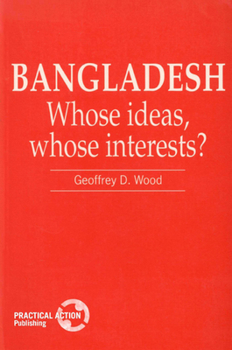Bangladesh: Whose Ideas, Whose Interests?
This book addresses, in the Bangladesh context, the fundamental processes of agrarian structural change and their gender implications, opportunities for wider participation by landless men and women in agricultural growth; the social implications of rural works and fish culture programmes; rural institutions and poverty alleviation; and broad institutional questions arising from the interaction between state, market and community (including NGOs) concerning corruption, good governance and the franchise state. Throughout the volume there is long-range, but grounded speculation which connects processes of 'urbanisation' to patterns of land use and shifting sets of opportunities for poor actors. The author concludes by offering eleven working principles as a guide through the development maze of poverty alleviation in Bangladesh.





